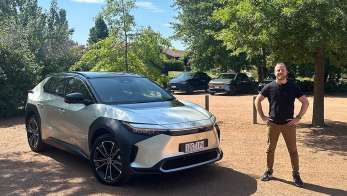Research released by the Australian Fleet Management Association (AfMA) has revealed purchase cost is still the leading issue facing the uptake of electric vehicles in Australian fleets.
Sixty per cent of the 177 organisations surveyed said purchase cost was their reason for not using EVs, with the cost of setting up workplace infrastructure and the limited choice of models on offer as the next two reasons. Only a third of the organisations surveyed are currently operating electric vehicles in their fleets, only making up a total of three per cent of surveyed fleet size in both the passenger and SUV categories.
All fleets said government intervention for subsidising the cost of electric vehicles would help them to transition their fleets.
Interestingly, the study also revealed that vehicle range should not be a significant barrier, as roughly 50 per cent of all fleets operated in a limited metropolitan scope. Other potential barriers to adoption like resale value, cost of ownership and access to charging infrastructure ranked low on overall concerns for fleet operators.
For reference, the most affordable electric vehicles on sale in Australia include the Nissan Leaf ($49,990 plus on-road costs – 270km range), Hyundai Ioniq Elite ($48,970 + ORCs – 373km range), and the soon-to-arrive MG ZS EV ($46,990 driveaway – 262km range).
.jpg)
Fleet uptake is essential for the propagation of electric vehicles on the used market, which helps broaden acceptance of the technology, brings down the cost of entry and encourages the development of infrastructure.
This model has been successful in European markets like Germany where there are healthy government subsidies for fleets and private buyers alike, but the lack of such policies is making it tough for OEMs to consider introducing slow-selling electric models to our market. A notable recent casualty which attempted to appeal to fleets was the Renault Zoe.
Despite lack of federal government action, many states are now mandating electric vehicles make up a part of their fleets. The NSW government, for example, is targeting a 30 per cent hybrid and 10 per cent fully electric fleet by 2023.


.jpg)


.jpg)






.jpg)

.jpg)
.jpg)




Comments